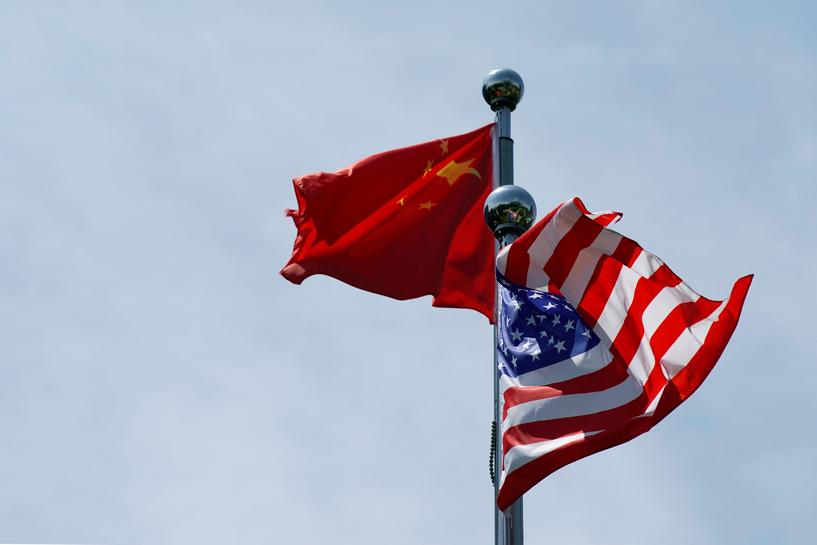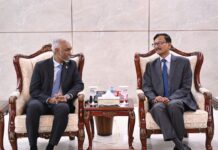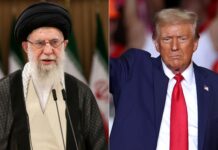HONG KONG: Optimism over the China-US trade talks kept Asian markets buoyant on Friday, with investors betting the two will eventually sign a partial deal, though they remain nervous as next week’s deadline for fresh tariffs draws closer.
Sentiment across trading floors has ebbed and flowed through the week as observers try to gauge the state of play in the long-running negotiations, with both sides making positive, then negative comments on the outlook.
Donald Trump caused upheaval by saying he would be happy if a pact was not signed until after next November’s elections, reimposed tariffs on Argentina and Brazil and threatened France with 100 percent levies over a digital tax.
The passage of a House of Representatives bill in support of minority Uighurs in China also riled a Beijing still angry at Trump’s decision to pass a law backing Hong Kong protesters.But talks appear back on track after reports US officials were hopeful an agreement would be signed, while the president said Thursday things were “moving along well”.
The latest soundings allowed investors to return to the buying that has helped propel global markets for weeks, sending Wall Street to multiple records.
China on Friday offered its latest olive branch, saying it would waiver tariffs on “some” imports of key US soybean and pork imports, providing extra support to traders.
Hong Kong climbed more than one per cent, Shanghai and Sydney added 0.4 per cent, while Tokyo, Singapore, Wellington, Manila, Bangkok and Jakarta each gained 0.2 per cent.
Seoul jumped more than one per cent and Taipei edged up 0.1 per cent but Mumbai slipped 0.4 per cent.
In early trade London and Frankfurt each rose 0.3 per cent, while Paris gained 0.2 per cent.
“It’s been rather a strange week for global equity markets,” said Michael Hewson at CMC Markets UK.
“Moving from an expectation that we could well see some movement on trade between the US and China in the next couple of weeks, to the prospect that any solution may well not happen until after the next presidential election.
“As a result of these mixed signals investors appear to be taking a more cautious view as to what may happen next.”
Traders remain on edge just over a week until December 15 — the day on which the US is due to impose tariffs on more China goods.
“Things are looking modestly positive, but that can change on a dime,” Michael Reynolds, investment strategy officer at Glenmede Trust, told Bloomberg News.
“We’re expecting trade to dominate the narrative for the next week and a half as we approach that December 15 deadline.”
Still, analysts say progress in the talks is key for both sides.
The next round of tariffs “will punish the US consumer as prices of children’s toys, laptops, and other electronics will jump higher”, said Edward Moya at OANDA.
“It could be political suicide in some battleground states if Trump went forward with these next rounds of tariffs.”
He added that that while traders were hopeful the US will not go ahead with the levies, markets “are sceptical we will see a phase-one deal this side of the Christmas holiday”.
Investors are also keeping a close eye on events in Washington after top Democrat Nancy Pelosi gave the green light to draft articles of impeachment against Trump, saying his alleged abuse of power “leaves us no choice but to act”.
Oil prices ticked lower after a meeting of OPEC and other major producers led by Russia broke up without a solid agreement on cutting output further.
They had been considering cuts above their previous agreement to reduce output by 1.2 million barrels per day from October 2018 levels but could not finalise a figure after six hours of talks.
Russian Energy Minister Alexander Novak said a preliminary gathering of ministers had recommended an additional 500,000 barrel-per-day reduction for the first quarter of 2020.
But analysts said that disappointed markets who had been hoping for more.
Also on the radar is the release later in the day of key US jobs data that will provide a fresh snapshot of the world’s top economy and could help dictate Federal Reserve monetary policy and possibly Trump’s trade moves.AFP







